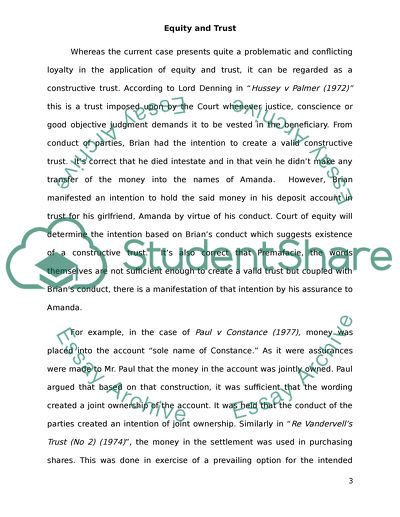Cite this document
(“Equity and Trusts Essay Example | Topics and Well Written Essays - 1500 words”, n.d.)
Equity and Trusts Essay Example | Topics and Well Written Essays - 1500 words. Retrieved from https://studentshare.org/law/1465976-equity-and-trusts
Equity and Trusts Essay Example | Topics and Well Written Essays - 1500 words. Retrieved from https://studentshare.org/law/1465976-equity-and-trusts
(Equity and Trusts Essay Example | Topics and Well Written Essays - 1500 Words)
Equity and Trusts Essay Example | Topics and Well Written Essays - 1500 Words. https://studentshare.org/law/1465976-equity-and-trusts.
Equity and Trusts Essay Example | Topics and Well Written Essays - 1500 Words. https://studentshare.org/law/1465976-equity-and-trusts.
“Equity and Trusts Essay Example | Topics and Well Written Essays - 1500 Words”, n.d. https://studentshare.org/law/1465976-equity-and-trusts.


